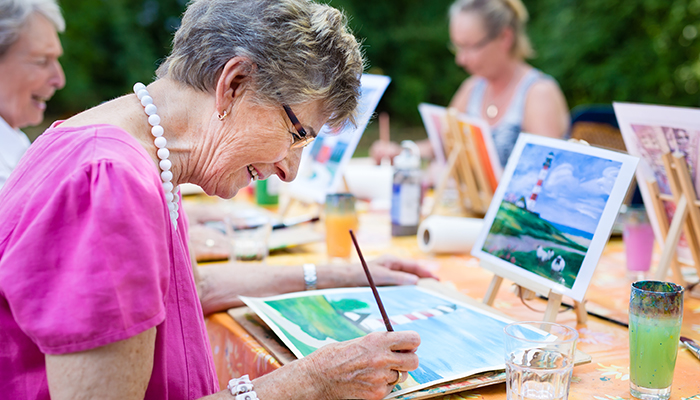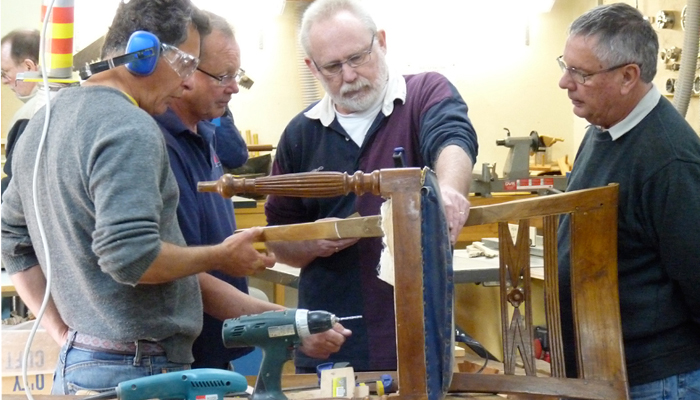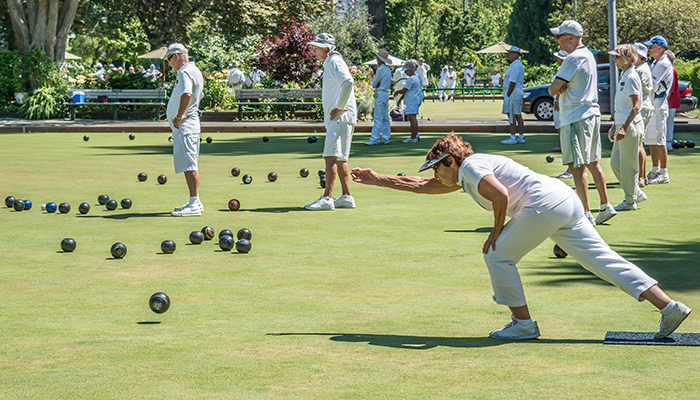Research we’ve been carrying out at Macquarie University suggests that participating in a social group protects your mental health in older age and can improve treatment outcomes for people already managing depression and anxiety.

Sense of belonging: Feeling a connection to a group is one of the most important aspects for overcoming social isolation, explains Wuthrich.
At the Centre for Emotional Health, we have just completed successful pilot studies, and our findings suggest that in conjunction with other psychological treatments, establishing meaningful social connections is the best treatment for older people with anxiety and depression that we’ve ever found.
Today almost one in seven Australians are over the age of 65. That’s forecast to increase to one in four - a quarter of the population - in 30 years’ time. And with 10-15 per cent of older people experiencing anxiety and depression, according to the Australian Institute for Health and Welfare, there’s a risk of a burgeoning health problem.
October is Mental Health Month and 1 October is the UN International Day of Older Persons, so it’s a really good time to focus on mental health and older people.
The results of our pilot studies align with other research that shows participating in a social activity protects your mental and cognitive health. In fact, some research suggests an 80-year old with strong social connections can have the cognitive ability of someone 10 years younger.
Social isolation is one of the barriers to joining a group or activity that requires social contact.
Joining social groups protects against possible future depression, alleviates current depression symptoms and makes you much less likely to relapse, right across your lifespan.
In our studies, we encouraged people to make social connections while treating them with Cognitive Behaviour Therapy (CBT). This technique teaches people how to change unhelpful or unhealthy ways of thinking, feeling and behaving by using practical self-help strategies.
- What will the average life expectancy be in 100 years?
- Why your 'couple song' could mean so much more, as time goes by
- Are left-handed people really more creative?
To be effective, the social contact must be meaningful and make people feel valued. Feeling a sense of inclusion and connection to a group is the most significant aspect of social interaction, because people feel socially supported and that they share a common goal that unites them with other members.

Common purpose: Men's Sheds are helping older men across Australia find social inclusion and meaningful participation in their local community. Credit: Australian Men's Shed Association.
People also want to be associated with a group that has an identity. So when they meet someone, they can proudly say: ‘Hey, I am a member of the Rotary club’ or ‘I’m a bushwalker too’. And it’s not just being part of one group, belonging to multiple groups is even better.
Barriers to socialising
Social isolation is one of the barriers to joining a group or activity that requires social contact. At the moment, 95 per cent of Australians over the age of 65 years live in their own homes. When a partner dies or someone suffers health problems, suddenly the concept of having frequent social connections can be much more difficult. If they can’t drive or there’s no public transport, then relying on neighbours or other family members can be burdensome.
These insights can guide interventions to help tackle the problem. We’re working with local councils, local health districts and community mental health teams to improve the services and resources available to older people to facilitate those social connections.

Study success: Macquarie University's Centre for Emotional Health is carrying out a clinical trial looking at the effects of taking part in social activities.
Our research targets older adults who already have anxiety and depression. This is a particularly vulnerable group who tend to have less social contact because anxiety and depression cause you to get out less and be less connected. If we can reverse this by revving up the amount of social contact they have, then it actually seems to have really powerful long-lasting effects.
Carrying on from our successful pilot studies, we are conducting a clinical trial (co-funded by the National Health and Medical Research Council and Beyond Blue). We’re treating anxiety and depression in older people with CBT and looking at the effects of social participation on outcomes.
Professor Viviana Wuthrich is Director of the Macquarie University Faculty of Human Sciences Research Centre for Ageing, Cognition & Wellbeing.
Participants wanted:
If you’re over the age of 65 and would like to be involved in the trial, you can find out more here.



